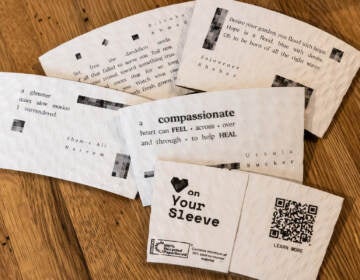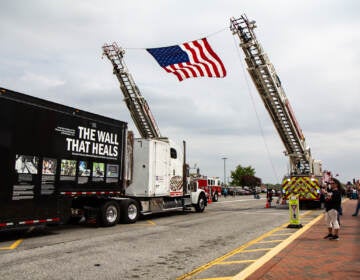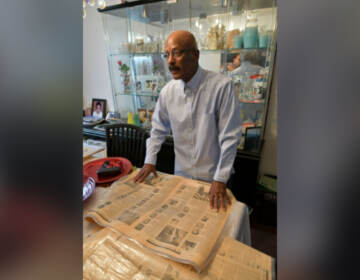Veterans’ poems address psychic wounds of Vietnam
Vietnam vets gather in Center City to share contributions to a new anthology of poetry about the scars of war.
Listen 6:56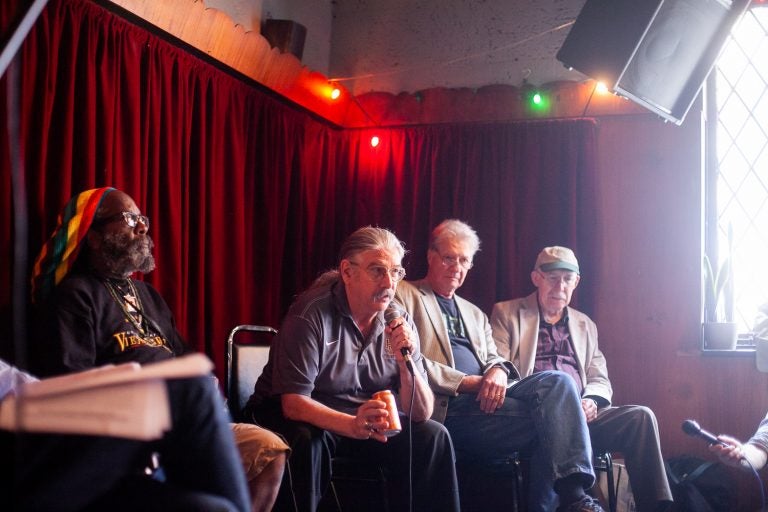
W.D. Ehrhart makes introductions at an event at Fergies's Pub in Center City to celebrate a recently released book of poetry by Vietnam veterans. (Brad Larrison for WHYY)
Good writing often has its roots in trauma. And for Americans who served in the Vietnam War, it’s sometimes hard to separate personal trauma from anger at the government that sent them to a war they felt — or came to feel — was unjust. Some of the poetry composed in that era reflects those themes — as well as racism, propaganda, and the disillusionment that often comes with returning home.
NewsWorks Tonight producer Shai Ben-Yaacov spoke with five Vietnam veterans, most with poems cited in “A Shadow on our Hearts; Soldier Poetry, Morality, and the American War in Vietnam.”
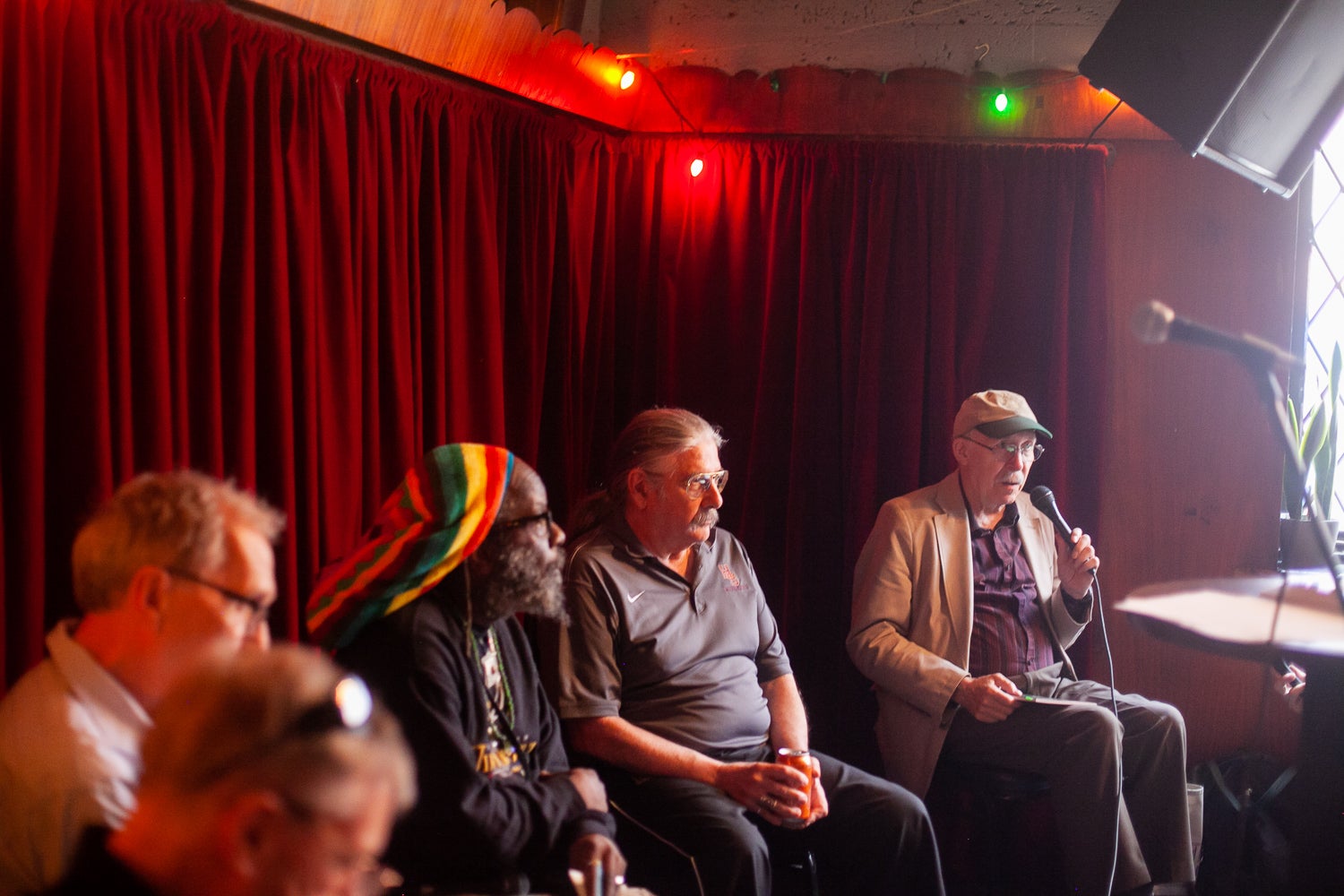
Jan Barry
“What, hopefully, was taking place in our interactions was that we were providing — also through our previous anthologies — a way that they could find a voice and also an audience in that they were having as much of a hard time getting family members and friends to listen to them as we did.
“What’s even more bizarre is that in many cases it was the same family” that had served in Vietnam.”
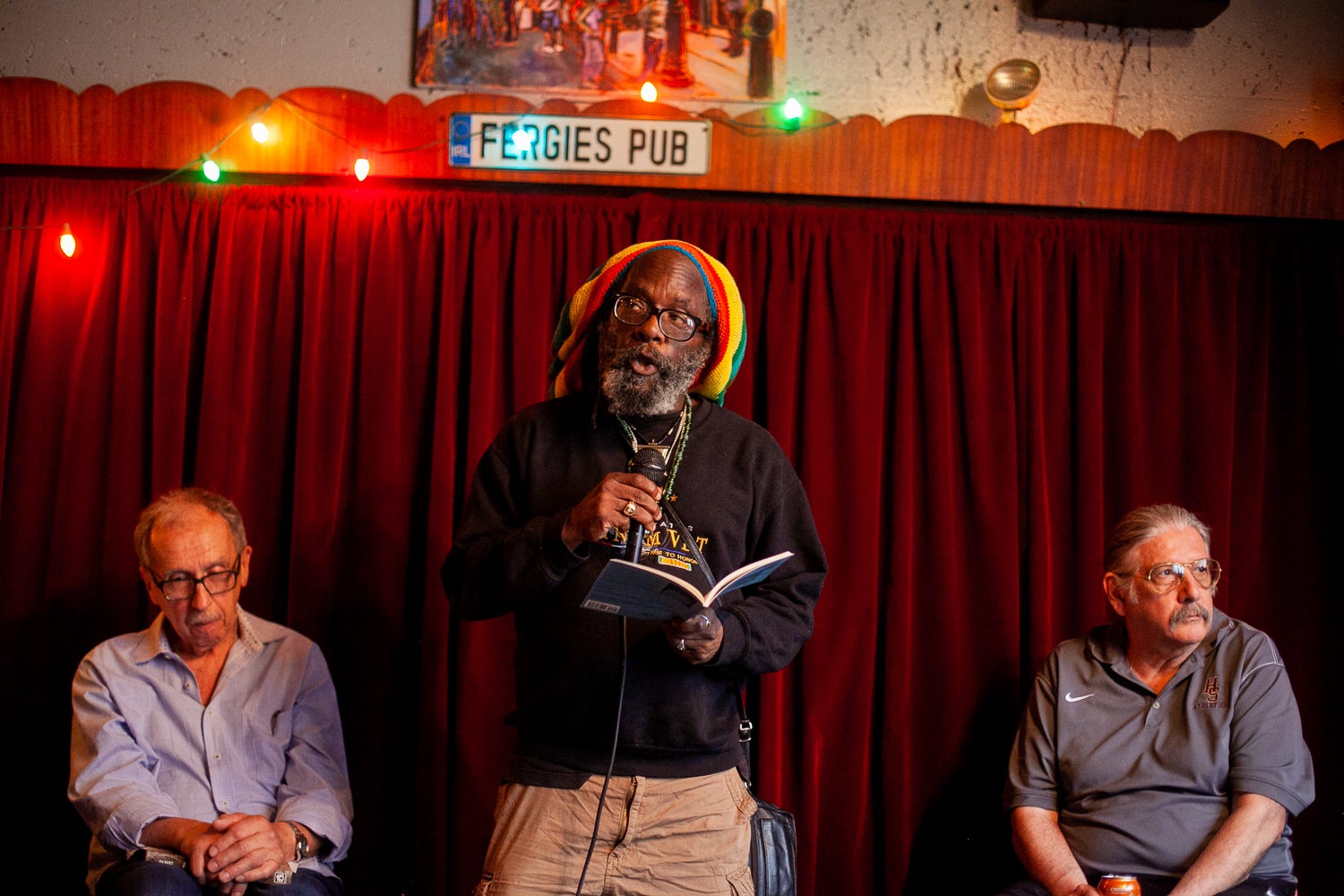
Lamont Steptoe
“My first week there, one of the women, she was shining some boots in front of the platoon leaders’ office. Her name was Lin. And she looks at me and says, ‘You same same monkey.’
“I said, ‘What?’
“She said, ‘You same same monkey.’ And of course you can imagine what my response was.
“And some of them would even walk behind black soldiers to see if we had a tail. Now where were they getting this?
“A lot of times, they were being told this by white soldiers, racist white soldiers.”
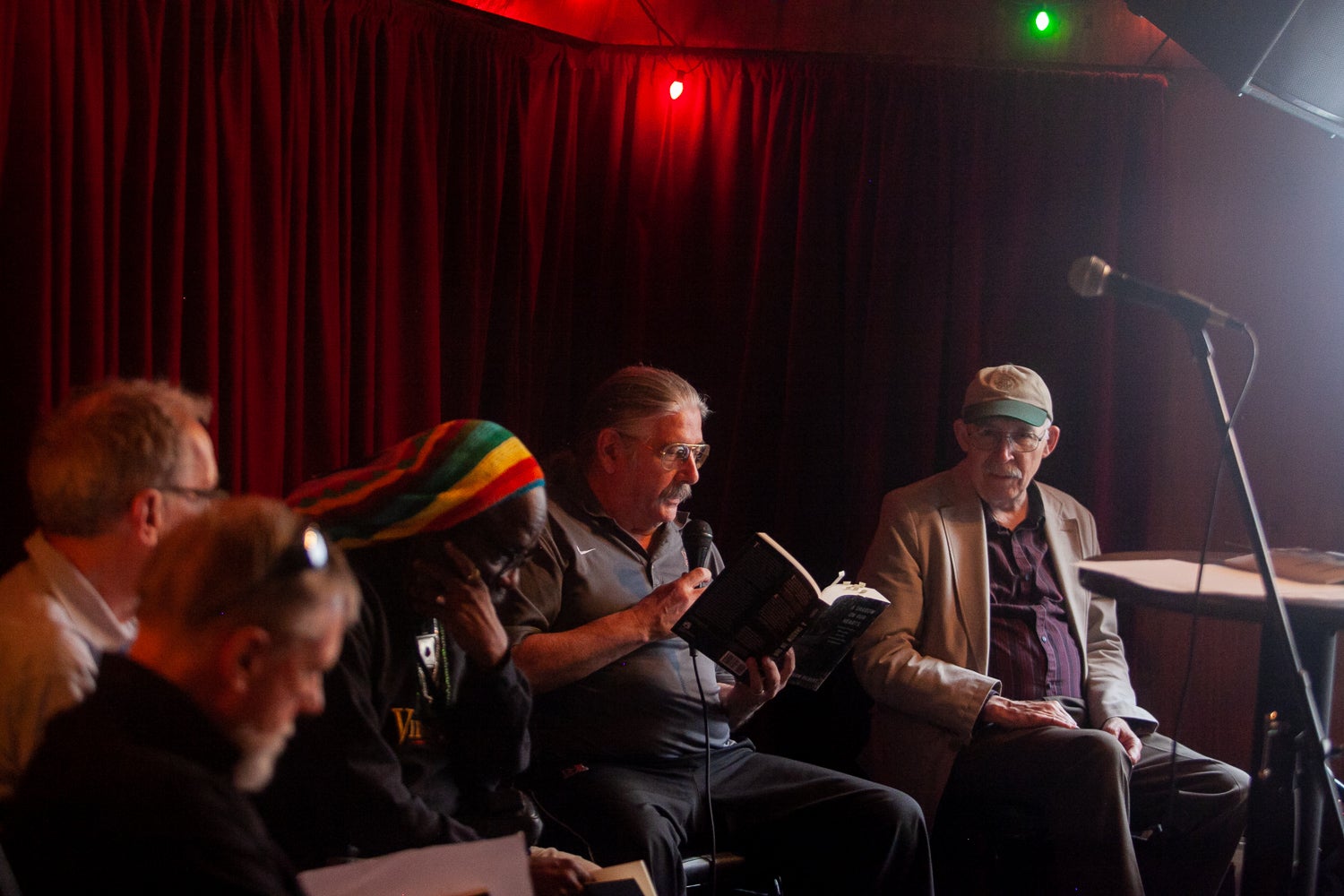
W.D. Ehrhart
“I often get ‘Thank you for your service.’
“I went halfway around the world to kill, maim, and make miserable people who’d never done me or my country any harm nor ever would or could. If you want to thank me for that, you should go talk to your priest.”
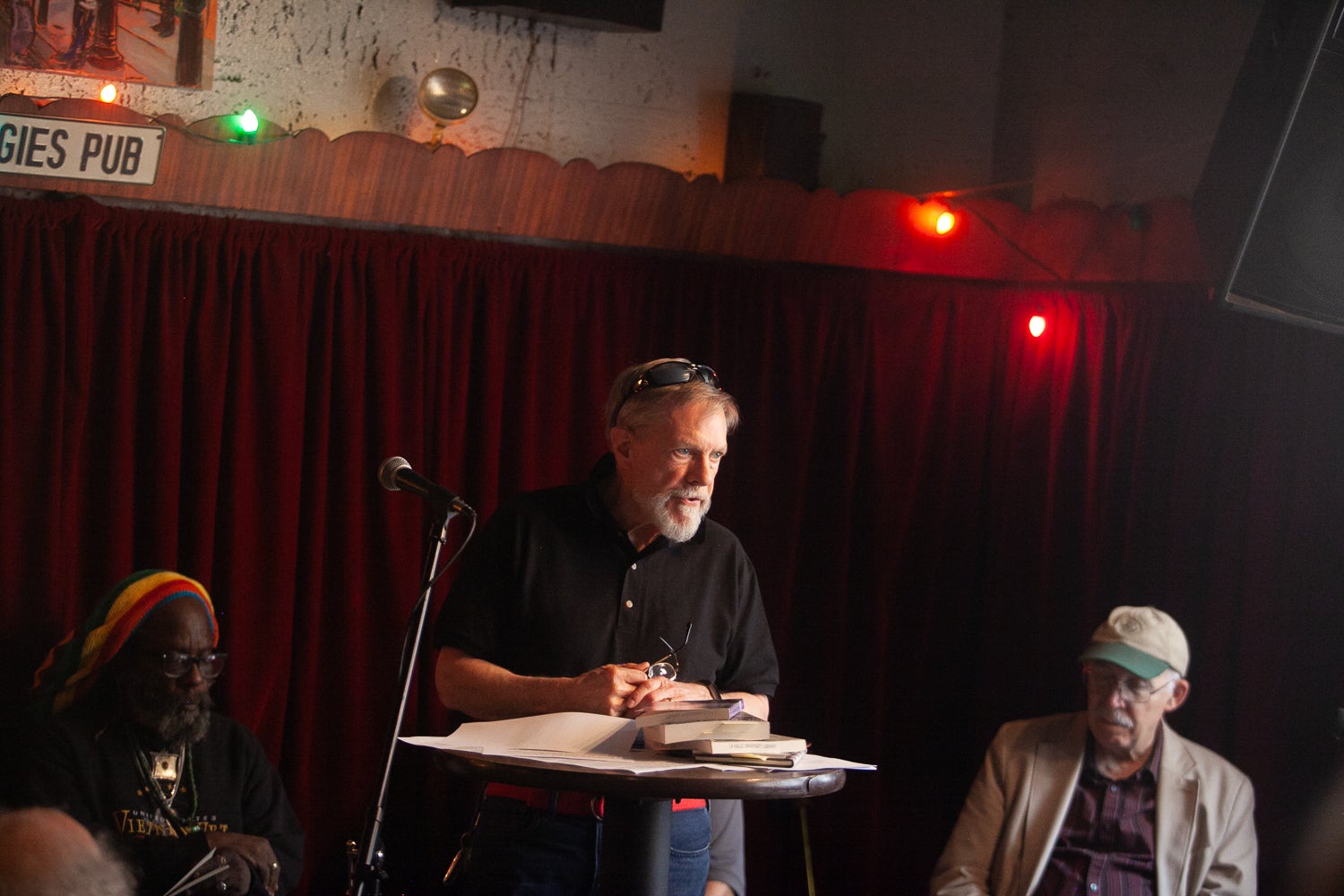
John Baky
“Military people, no matter what the conflict, become trained to dehumanize the enemy.
“Because, if you’re going to commit systematic violence, you can’t have your troops considering their targets being just like you, so there becomes a systematic retraining of the psychology of troops. And that’s essentially what keeps happening over and over and over and over again. And you hear that in the Iraq War and Afghanistan and you name it, that’s what happens.”
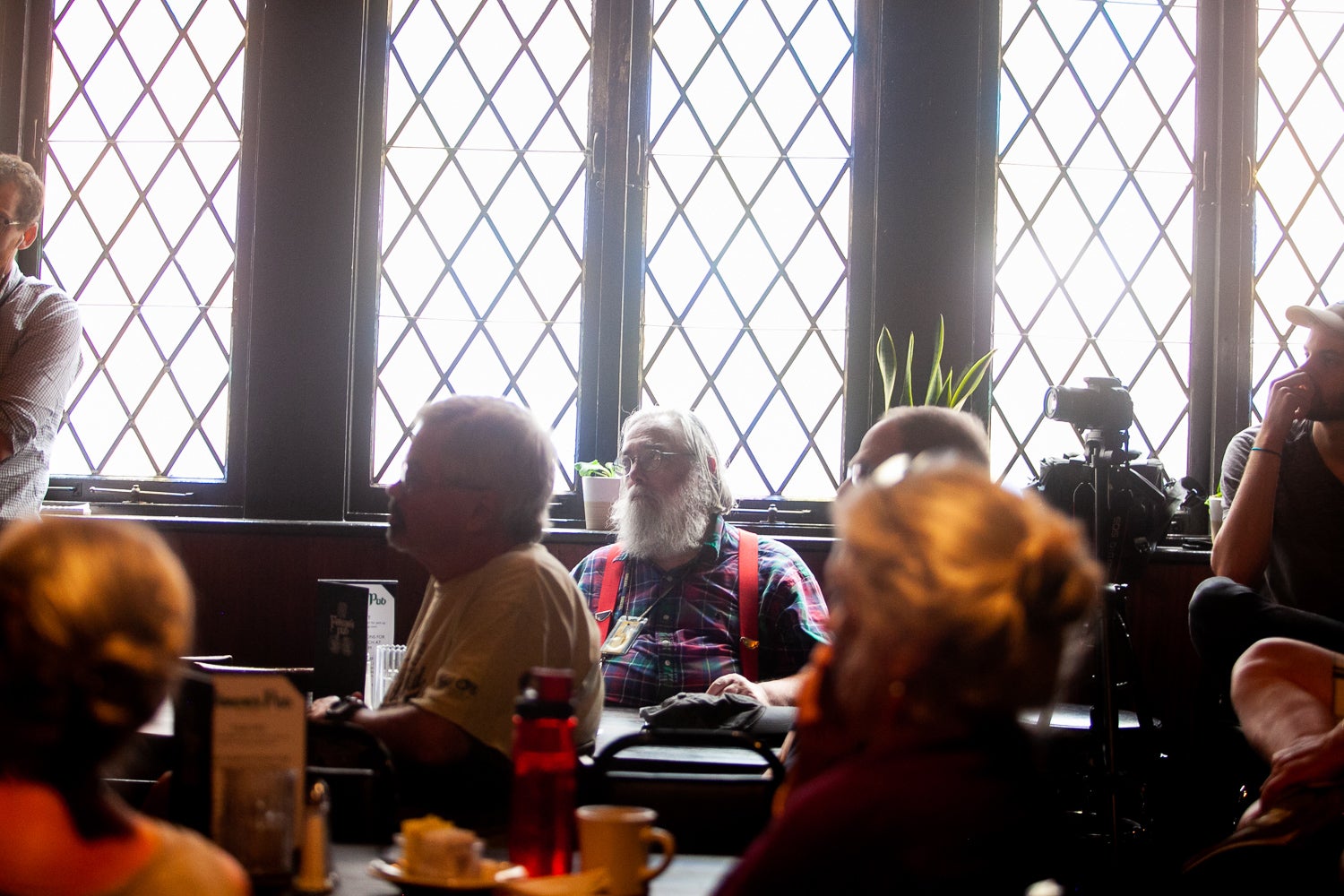
Peter Mahoney
“The problem for me is that all of those memorials and ticker tape parades and all of those things that were happening in the early ’80s were actually part of a concerted effort to change the whole dialogue about Vietnam. So it became not ‘don’t send American troops for worthless causes,’ it became ‘support the troops.’ That became the fundamental lesson of Vietnam.
“So now you hear from well meaning anti-war people who feel that they have to preface every sentence as, ‘Well, I support the troops, but…’
“And my question is, how do you support the troops without supporting the cause that they’re fighting in?”
WHYY is your source for fact-based, in-depth journalism and information. As a nonprofit organization, we rely on financial support from readers like you. Please give today.


